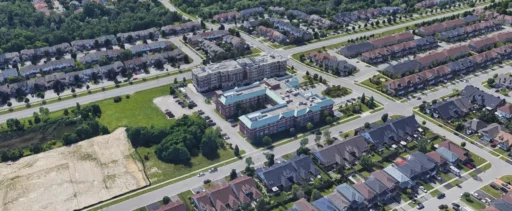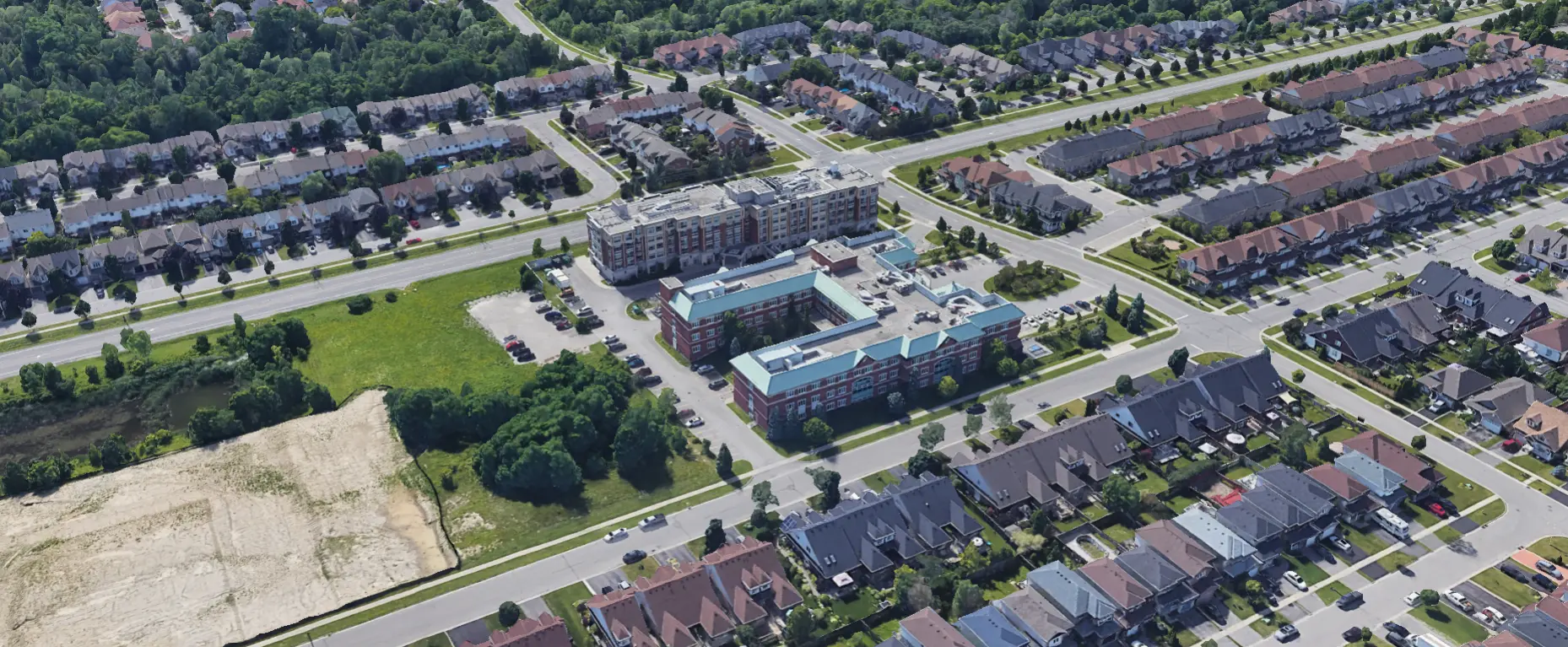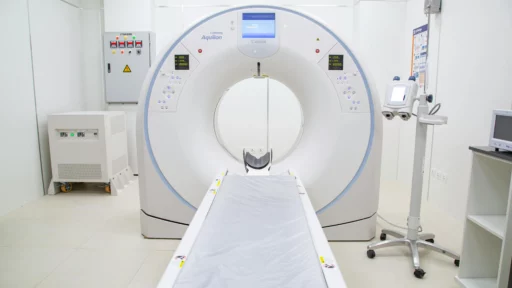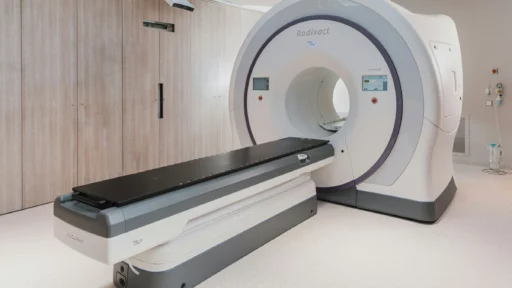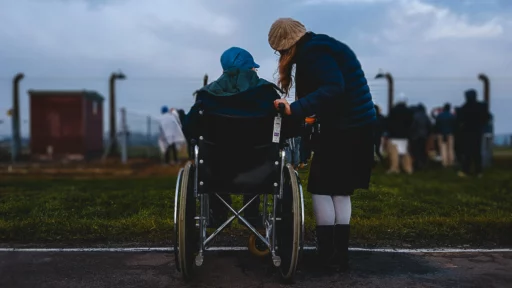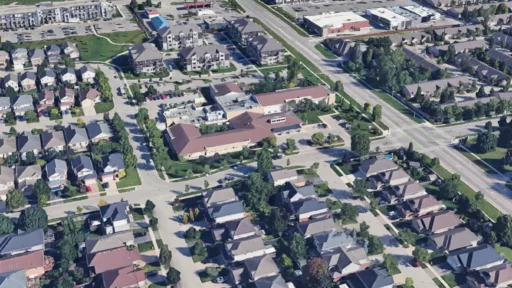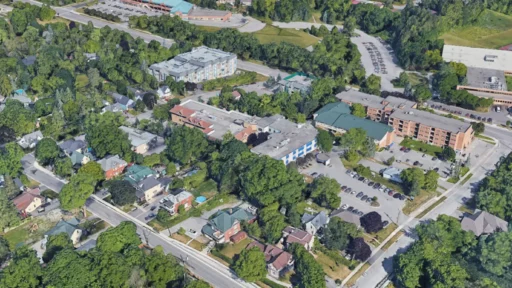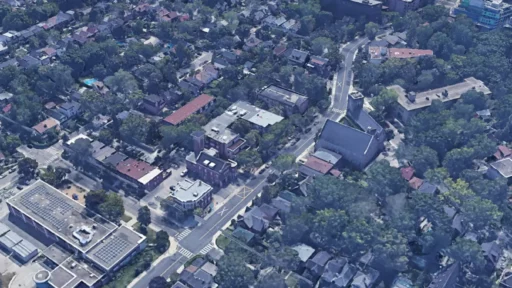AgeCare Samac (451 Woodmount Drive, Oshawa, Ontario) is operated by AgeCare, a for-profit operator of long-term care homes in Canada. There are approximately 170 beds.
AgeCare Samac is formerly owned and operated by Chartwell, a for-profit operator of senior accommodations in Canada. The facility was previously known as Chartwell Wynfield Long Term Care Residence.
Our research team carefully reviewed and summarized inspection reports for AgeCare Samac. You can read the original copies of the reports in the Government of Ontario website.
Inspection Reports for AgeCare Samac
Chartwell completed its sale of long-term care homes to AgeCare on September 6, 2023. Inspection results after this date should not be attributed to Chartwell operations.
🔍 January 2024: Inspection
The inspection for AgeCare Samac, conducted by Sheri Williams, focused on complaints regarding neglect and altered skin integrity among other issues.
- Mobility Devices: The home failed to ensure the availability of mobility devices for residents requiring them on a short-term basis, directly contributing to a resident’s pressure ulcer and feeding difficulties. This neglect was highlighted by a resident’s extended period in bed due to the absence of an appropriate mobility device, even after occupational therapy assessment.
- Nutritional Care and Hydration Programs: The licensee did not adhere to its policy of taking resident weights within 24 hours of admission. A resident’s weight was delayed by seven days, posing a nutritional risk due to the absence of an accurate initial weight for monitoring.
A compliance order was issued due to the licensee’s failure to protect a resident from neglect. Evidence of neglect included the lack of initial and weekly wound assessments, and delays in wound care treatments, which contributed to the resident’s deteriorating condition and eventual transfer to the hospital for complications related to a wound infection.
Inspection Reports for Chartwell Wynfield Long Term Care Residence
Chartwell completed its sale of long-term care homes to AgeCare on September 6, 2023. Inspection results before this date should not be attributed to AgeCare operations.
🔍 March 2023: Inspection
The inspection for Chartwell Wynfield Long Term Care Residence in Oshawa, conducted by Reethamol Sebastian, Joanne Zahur and Eric Tang, covers a range of critical incident system and complaint inspections. These inspections looked into multiple intakes involving resident falls, staff to resident abuse, resident-to-resident abuse, resident responsive behaviors, staff to resident neglect, and issues related to the plan of care and medication administration.
- Resident Records: A failure to keep a resident’s written records up-to-date was identified, particularly concerning the Dementia Observation Scale tool (DOS), which showed gaps in documentation. This lapse could impact the care team’s ability to provide appropriate care and ensure the safety of other residents.
- Residents’ Bill of Rights: The inspection found a failure to ensure a resident could raise concerns without reprisal from staff members. An incident was reported where a staff made an inappropriate remark to a resident after a complaint, leading to discipline for the staff involved. This could deter residents from voicing concerns in the future.
- Plan of Care: The facility did not reassess or review a resident’s plan of care following ineffective fall prevention strategies. This oversight was identified after a resident experienced a fall that led to hospitalization, indicating a moderate risk and impact on the resident due to ineffective fall prevention measures.
- Skin and Wound Care: There were failures in ensuring residents with altered skin integrity were assessed by a registered dietitian and that residents were reassessed weekly by registered nursing staff. These failures could impact wound healing progress and have a moderate risk on resident well-being.
- Infection Prevention and Control Program: The facility failed to implement standard protocols for infection prevention and control, particularly noted by the use of expired Alcohol-Based Hand Rub (ABHR). This posed a moderate risk for spreading infectious agents, especially during an outbreak.
- Reporting Certain Matters to Director and Duty to Protect: The licensee did not immediately report suspected verbal abuse of a resident, and failed to protect a resident from verbal abuse by staff. These incidents highlight concerns regarding the facility’s response to abuse allegations and the potential impact on resident safety and well-being.
- Policy to Promote Zero Tolerance of Abuse and Neglect: The facility failed to comply with its policy to promote zero tolerance of abuse and neglect of residents. This was evident in cases of both verbal and physical abuse by staff towards residents, indicating a risk of increased abuse and failure to take action on allegations.
🔍 August 2022: Inspection
The inspection for Chartwell Wynfield Long Term Care Residence, conducted by Susan Semeredy and Maria Paola Pistritto, was a follow-up inspection focusing on various intakes related to infection prevention and control, safe positioning at meals, labelling of personal items, storage of medication, and collaboration regarding diagnostic results.
- Responsive Behaviours: A significant finding from the inspection was the failure to develop and implement strategies to respond to a resident’s responsive behaviours when being assisted. Observations and interviews indicated that Personal Support Workers (PSWs) had difficulty assisting a specific resident due to inconsistent interventions and apparent frustration. The lack of developed strategies in the resident’s plan of care highlighted a gap in personalized care and risk management.
The report outlines that previous issued compliance orders were found to be in compliance during this inspection. These included directives related to general staff duties, dining and snack service, infection prevention and control, and resident assessment plans.
🔍 May 2022: Critical Incident Inspection
The inspection for Chartwell Wynfield Long Term Care Residence, conducted by Jennifer Batten, includes findings of non-compliance related to the assessment and care collaboration for a resident, as well as the safe storage of drugs within the facility.
- Resident Care Collaboration: The facility failed to ensure that staff collaborated effectively in assessing a resident, leading to a situation where critical lab results were not acted upon timely. This failure resulted in harm to the resident, identified as resident #018, who was not treated for critical lab values for over 10 days, adversely affecting their health. The resident was eventually transferred to the hospital and declared palliative.
- Safe Storage of Drugs: The inspection also found that the facility did not ensure drugs were stored securely and exclusively in designated areas. Medication carts were left unlocked and unattended, and medicated treatment creams were found in residents’ rooms, accessible to others. This presented a risk of exposure, ingestion, or inappropriate use of medications by residents.
The first compliance order was directed towards ensuring collaboration among care staff, specifically requiring education for all registered staff on handling lab reports and a documented record of this education.
A second compliance order was aimed at ensuring the secure storage of medications, with a mandate for weekly audits to verify compliance with storage regulations and maintaining documented records of these audits.
🔍 May 2022: Follow-Up Inspection
The inspection for Chartwell Wynfield Long Term Care Residence, conducted by Jennifer Batten, aimed to address previously issued Compliance Orders regarding various aspects of resident care and facility management.
- Labeling of Personal Items: The licensee failed to ensure that personal items, such as used rolls of deodorant, hair combs, hairbrushes, denture cups, toothbrushes, and razors, were appropriately labeled with the resident’s name. This issue was observed in shared resident bathrooms and bedrooms, raising concerns about the potential for using unsanitary personal items and the risk of spreading infections.
- Dining and Snack Service: Proper techniques, including safe positioning of residents who require assistance during meals, were not ensured. Observations indicated that several residents were not seated in an upright position while being assisted with eating, contrary to their care plans which specified the need for a safe and upright position to minimize the risk of choking and aspiration. Additionally, some staff members were observed assisting residents while standing above them instead of being seated beside them, contrary to the home’s expectations for mealtime assistance.
- Infection Prevention and Control Program: There was a failure to ensure staff adherence to the home’s infection prevention and control (IPAC) practices. Observations highlighted several IPAC-related concerns, including instances where hand hygiene was not performed or offered before or after food and fluid intake, personal protective equipment (PPE) was not used correctly or at all by staff and Essential Caregivers, PPE stations were inadequately stocked or missing required items, and several hand sanitization stations were empty or non-functional. These lapses indicated a risk of harm to residents through potential transmission of infectious agents, including COVID-19.
The inspection resulted in the re-issuance of Compliance Orders to address ongoing issues, specifically the need for proper labeling of personal items, ensuring safe positioning of residents during meals, and adherence to infection prevention and control protocols.
🔍 April 2022: Complaints Inspection
The inspection for Chartwell Wynfield Long Term Care Residence identified non-compliance issues related to the management of skin and wound care for a resident, specifically resident #031.
- Failure to Conduct Timely Skin Assessments: The licensee did not ensure that resident #031, exhibiting altered skin integrity, received a skin assessment by a member of the registered nursing staff upon the resident’s return from the hospital. This lapse in assessment could increase the risk of the affected area worsening or becoming infected due to lack of proper evaluation and treatment.
- Lack of Weekly Reassessments: The licensee failed to ensure that resident #031, who was exhibiting altered skin integrity, was reassessed at least weekly by a member of the registered nursing staff. This failure led to the condition of the resident’s skin integrity worsening, resulting in hospitalization for treatment of the infection.
🔍 February 2022: Critical Incident Inspection
The inspection for Chartwell Wynfield Long Term Care Residence, led by inspectors Jack Shi and Ella Levinskaya, was initiated due to a log related to a fall and another log related to an outbreak.
- Plan of Care: The facility failed to reassess a resident’s plan of care and revise it effectively, especially after the resident sustained a fall, leading to a change in their condition and subsequent death. The fall prevention interventions developed were deemed ineffective, and the facility acknowledged that different approaches should have been considered to prevent falls for the resident.
- Falls Prevention Policies and Procedures: The licensee did not comply with falls prevention policies and procedures, including the lack of an Environmental Fall Risk Assessment for residents #001, #002, and #003. This gap increased the likelihood of falls and injuries due to inappropriate fall prevention interventions.
- Infection Prevention and Control Program Non-Compliance: The staff failed to follow the home’s IPAC program during an outbreak, with observations of staff not wearing appropriate personal protective equipment (PPE) while feeding residents in common areas and entering resident rooms on units with positive cases. This failure risked further spread of the virus.
A compliance order was issued to address the ineffective falls prevention interventions and ensure that residents at high risk for falls are identified, and their care plans are reviewed and revised accordingly.
A written notification was issued for the failure to comply with falls prevention policies and procedures, requiring the licensee to prepare a voluntary plan of correction Another written notification was issued for the failure to ensure staff participation in the IPAC program, highlighting previous non-compliances and the need for immediate correction.
